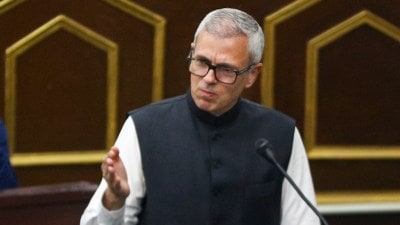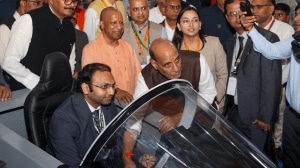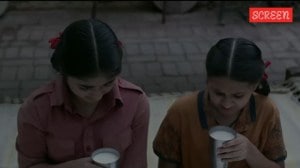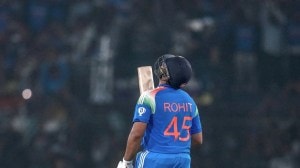Rebels set 24-hr deadline for Russia
The world’s biggest hostage crisis escalated today with Chechen gunmen holding 700 people hostage in a Moscow theatre threatening to st...

The world’s biggest hostage crisis escalated today with Chechen gunmen holding 700 people hostage in a Moscow theatre threatening to start killing their them early tomorrow if their demands were not met, even as Kremlin offered them safe passage in return for captives’ freedom.
As the hostages spent their third day in captivity without proper food and water amid deteriorating toilet conditions, the heavily armed Chechen rebels, believed to be numbering over 40, freed 15 people, including eight children but reneged on their promise of releasing 75 foreigners.
The children, aged between six and 12, were led to safety by members of the International Committee of the Red Cross. A Red Cross official said they were in good health.
The situation inside the besieged building worsening due to bursting of a hot water pipe in the basement and frequent malfunctioning of the heating system.
Conditions have been growing grimmer by the hour inside the theatre where the hostages use the orchestra pit as a toilet and supplies of food and medicines are low.
‘‘Many are suffering from stress. Can anyone imagine living under those conditions?’’ Dr Leonid Roshal, chairman of the International Committee for Paediatric Disasters who spent some six hours in the theatre, said.
Vladimir Vasiliyev, deputy interior minister, said after talks with guerrillas they had allowed doctors to bring food and water to the hostages, who were surviving on a diet of mainly chocolate snatched from the theatre’s refreshment rooms.
A woman being held inside the theatre said the hostages’ nerves were at breaking point. ‘‘It feels like something bad is hanging in the air,’’ Anna Andrianova told Ekho Moskvy radio.
Theatre spokeswoman Yelena Malyonkina said: ‘‘There is a big bomb in the centre of the hall. The stage is mined as well as all the passage ways. Fifteen guerrillas who are covered with explosives are on duty in the hall. They watch all possible directions from which a storming of the building may start.’’
Russian President Vladimir Putin discussed the situation with his top advisors following which it was announced that the lives of the gunmen would be guaranteed if they released the hostages.
Federal security chief Nikolai Patrushev, who made the announcement, was quoted by the Interfax news agency as saying, ‘‘we are conducting talks and will conduct talks, hoping that they will bring positive results in freeing the hostages.’’
But Putin said dialogue was only possible on the tough terms he had set out before and accused the hostage-takers of not wanting to end bloodshed in Chechnya.
‘‘We are open for any kind of contacts,’’ a sombre Putin said in his second television address since the theatre crisis. ‘‘All my previous proposals stand,’’ he said.
However, Sergei Govorukhin, a film-maker who had been involved in the talks with the Chechens alongside various other officials, said the talks were getting harder and it seemed the difficulties could not be resolved.
‘‘The situation is becoming difficult, almost a stalemate, almost unsolvable,’’ he told Russian NTV television.
But other officials who attended talks said the atmosphere at the negotiating table had not deteriorated.
Russian agencies said Putin was seeking advice from FSB chief Patrushev on Friday on how Western special forces handled such crises.
Putin also appealed to Russians not to take revenge on Chechen civilians, thousands of whom live across the country.



- 01
- 02
- 03
- 04
- 05




























